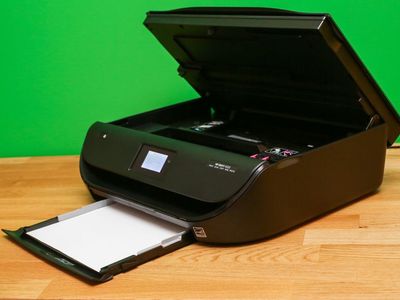

Unresponsive hotel management can create significant challenges for hotels, leading to reputational damage and lost revenue. A poor guest experience due to unresponsive service can quickly spread through online channels, significantly affecting bookings and long-term success. This article dives deep into the complexities of unresponsive hotel management, offering practical solutions to effectively address and resolve guest issues, ultimately ensuring a positive guest experience. We’ll explore various aspects from handling complaints to implementing proactive measures. This article will break down common issues, discuss effective strategies for improving responsiveness, and provide concrete steps for hotels to take.
Understanding the Impact of Unresponsive Hotel Management
The Ripple Effect of Poor Service
Unresponsive hotel management isn’t just about a few disgruntled guests; it’s a potential domino effect that can negatively impact a hotel’s bottom line. A single negative experience, amplified by online reviews, can deter future bookings, damage the hotel’s reputation, and even create a cycle of declining occupancy rates. This ripple effect extends beyond immediate financial losses, affecting the hotel’s brand image and customer loyalty. It’s a crucial aspect of the hotel industry that warrants immediate attention.
Case Studies and Examples
A recent study showed hotels with slow response times to guest complaints experienced a 15% drop in repeat business. This further emphasizes the importance of proactive problem-solving, and demonstrates the direct correlation between responsiveness and guest retention.
Identifying and Addressing Guest Issues
Proactive Communication
A proactive approach to guest communication is key to avoiding unresponsive service. Implementing automated systems to track and respond to online reviews is essential. Hotels can use these systems to identify recurring issues and trends. This proactive approach allows for more targeted solutions and improvements. Regular feedback surveys and questionnaires are crucial for gaining insight into guest experiences, enabling timely adjustments and addressing pain points before they escalate into major issues. Proactively identify the areas where the hotel lacks responsiveness and take immediate action to rectify these areas. This may also include introducing guest communication channels beyond the standard telephone or email.
Proactive Problem-Solving
Implementing an efficient communication system to track and respond to issues is vital for maintaining a positive reputation. Hotels can create a system with designated personnel for monitoring inquiries and complaints, ensuring prompt and effective responses. This includes developing a structured approach to addressing guest concerns effectively. Employing a designated team or department for this purpose ensures better response rates, as well as fostering a culture of accountability for efficient complaint resolution.
Implementing Effective Service Recovery Strategies
Recognizing and Addressing Complaints
Effective service recovery is paramount when issues arise. Hotels need to develop a clear protocol for dealing with guest complaints. This includes listening actively to the guest’s concerns, acknowledging their feelings, and offering sincere apologies when necessary. Offering tangible solutions, like expedited compensation or complimentary upgrades, demonstrates a commitment to resolving issues promptly and effectively. Implementing a well-defined system for managing and resolving guest complaints will significantly improve the experience.
The Importance of Empathy
Empathy plays a vital role in handling guest complaints. Understanding the guest’s perspective and acknowledging their frustration is critical in achieving a favorable outcome. This means putting yourself in the guest’s shoes and understanding their needs. Providing personalized solutions demonstrates that the hotel cares about the guest experience.
Fostering a Culture of Responsiveness
Training and Empowerment
Empowering staff to handle guest issues effectively is essential for improving overall hotel responsiveness. Comprehensive training programs for all staff levels, encompassing communication skills, problem-solving techniques, and empathy development, can foster a culture of responsiveness. Providing staff with the authority and resources to address guest concerns promptly is also vital. Investing in training shows employees and guests that responsiveness is a priority.
Tracking and Analyzing Data
Tracking and analyzing data related to guest interactions can reveal trends and patterns in customer complaints. Identifying recurrent issues allows hotels to implement targeted improvements and enhance their service delivery. Using data effectively helps predict and resolve issues more efficiently.
Proactive Measures for Improved Responsiveness
Streamlining Communication Channels
Simplifying communication channels and streamlining procedures for handling guest requests can significantly increase responsiveness. Implementing readily available, easy-to-access communication channels ensures that guests can easily connect with the hotel. This includes employing online chatbots or providing multiple phone lines for quicker response times. This can streamline the process, reducing the time it takes to resolve issues. The more streamlined the process, the faster the resolution.
Technology Integration
Implementing technology to enhance guest communication and service recovery is essential for improving responsiveness. Utilizing online booking platforms, integrated chatbots, and mobile apps allows for real-time communication and feedback gathering. This facilitates quick responses and ensures prompt resolution of guest concerns.
Measuring and Monitoring Progress
Performance Metrics
Regularly monitoring key performance indicators (KPIs) relating to guest feedback, response times, and complaint resolution rates can help evaluate the effectiveness of implemented strategies. This data-driven approach allows for the identification of areas needing improvement and for adjustments to be made proactively. Understanding these metrics also helps determine the impact of responsiveness on profitability. This data helps to identify the extent to which guest issues are being addressed.
Continuous Improvement
Hotels should adopt a continuous improvement mindset, regularly assessing their strategies and adapting their processes accordingly to reflect guest feedback. This approach emphasizes ongoing evaluation, analysis of trends, and making necessary changes to maintain a high level of responsiveness. Continuously evaluating the efficacy of strategies, allows for the identification of gaps and the implementation of necessary changes.
The Value of Proactive Communication
Building Trust and Loyalty
Proactive communication builds trust and fosters loyalty among guests. Guests feel valued when they receive timely responses and resolutions to their issues. This proactive approach minimizes potential negative experiences and ensures a positive relationship with guests, leading to repeat bookings and positive reviews. This strategy can directly impact revenue and long-term sustainability.
The Role of Technology in Modern Hotel Management
Enhancing Communication
Technology plays a crucial role in enhancing responsiveness in modern hotels. Using online booking platforms and chatbots for instant communication can improve response times. Mobile check-in and automated services offer convenience for guests and improve overall efficiency. The integration of such technologies can significantly streamline communication between guests and the hotel staff. This seamless integration can minimize potential friction, and effectively address guest concerns in a timely manner.
Automating Tasks
Automation can streamline many processes related to guest interactions, freeing up staff to handle more complex issues. Automated email confirmations, or personalized welcome messages, are a few examples. Automating these tasks allows for quicker responses to inquiries, and improved efficiency in handling requests. This streamlined process directly improves guest satisfaction.
The Importance of Employee Training
Empowering Staff
Empowering staff to address issues promptly and professionally is essential. Providing comprehensive training on communication skills, conflict resolution, and empathy building is key. These skills ensure staff can effectively handle guest interactions, resolve issues promptly, and showcase a positive and responsive attitude to guests. This proactive approach ensures that guests feel heard and understood, ultimately leading to a more positive experience.
Defining Roles and Responsibilities
Clearly defined roles and responsibilities regarding guest interaction and issue resolution contribute significantly to responsiveness. Establishing clear procedures ensures consistency in service quality and reduces confusion or delays in responding to guest needs. A clear chain of command streamlines the complaint process, ensuring each issue is addressed and resolved efficiently.
Frequently Asked Questions
What are the key indicators of unresponsive hotel management?
Unresponsive hotel management often manifests in delayed responses to guest requests, a lack of proactive communication, difficulty in resolving guest issues, and a general lack of empathy in handling complaints. Guests may experience long wait times for assistance, inconsistent communication, and feeling unheard, leading to frustration and negative perceptions. This can manifest in poor online reviews and negative word-of-mouth.
In conclusion, unresponsive hotel management can significantly damage a hotel’s reputation and profitability. Implementing a proactive approach to resolving guest issues, fostering open communication channels, and ensuring efficient follow-up processes are crucial for preventing such issues. By prioritizing guest satisfaction and effectively handling complaints, hotels can mitigate the negative impacts of unresponsive service and create loyal, returning customers. Consider implementing a system to track and analyze guest feedback for continuous improvement. Contact us today for a free consultation on improving your hotel’s responsiveness and guest experience.